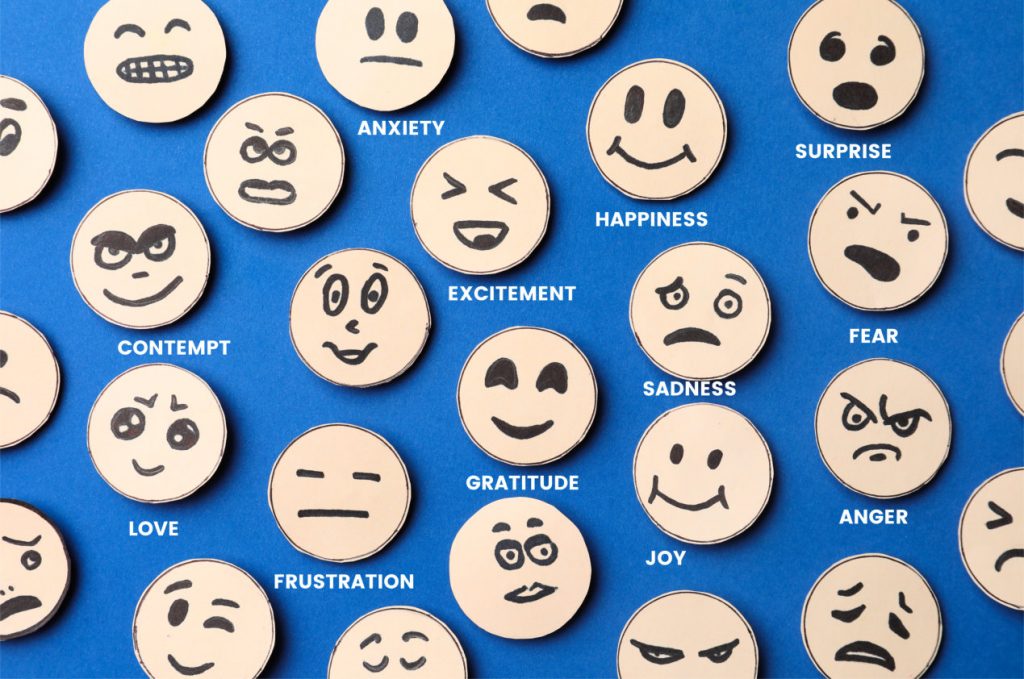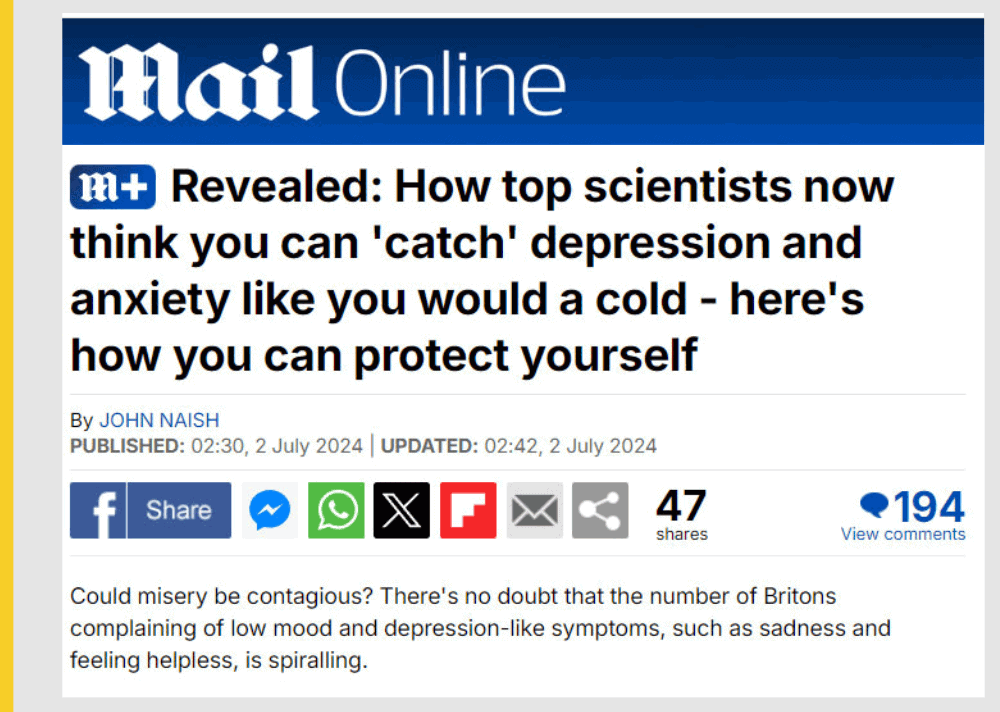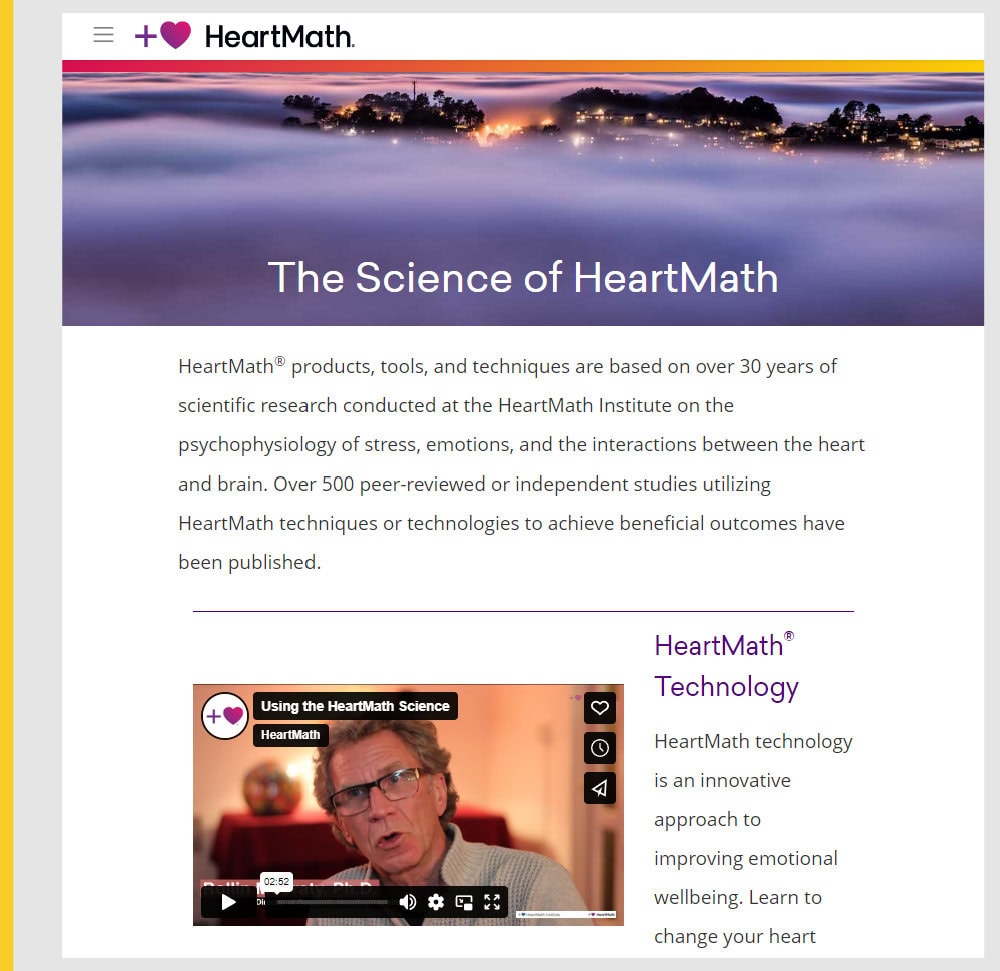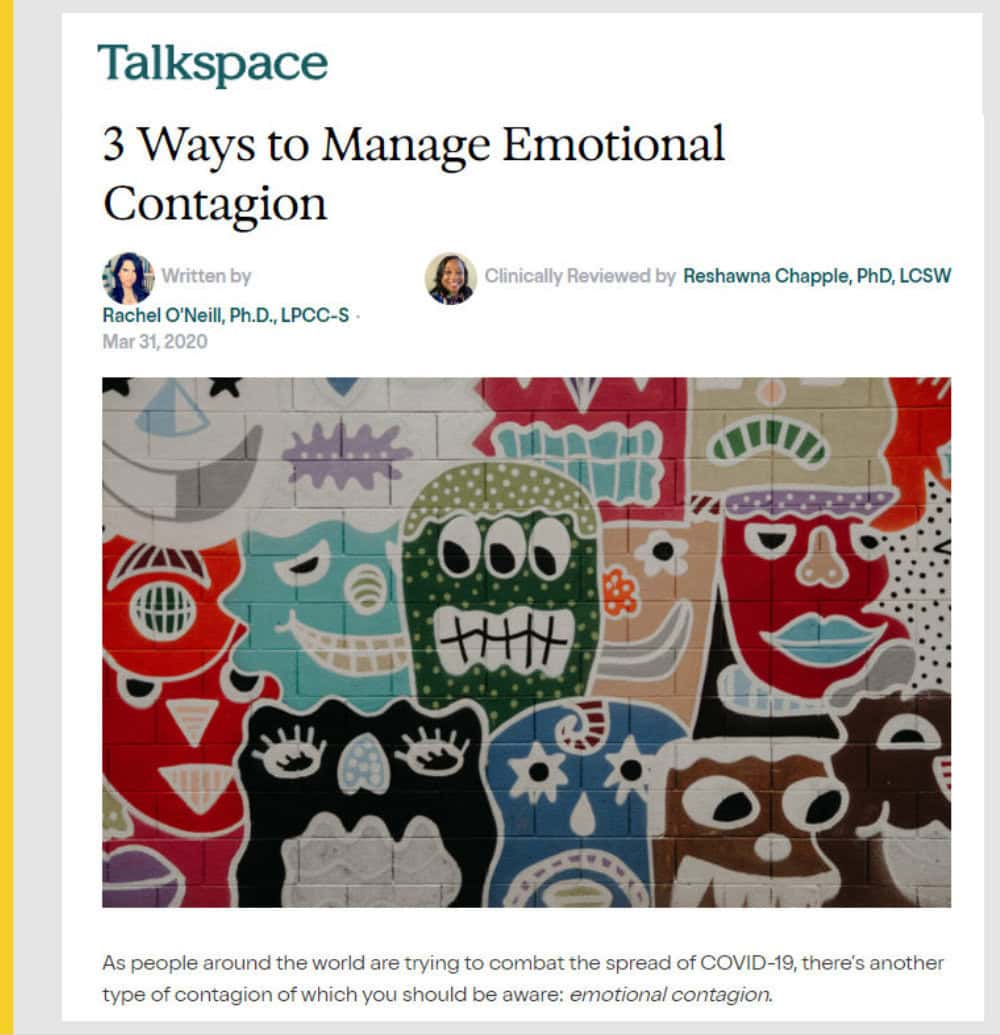There appears to be increasing interest in and research on emotional contagion recently.
Some researchers, psychologists, and psychiatrists are confirming that they believe that human beings can catch emotions from other human beings in the same way that you’d catch a cold.
“Could misery be contagious?
There’s no doubt that the number of Britons complaining of low mood and depression-like symptoms, such as sadness and feeling helpless, is spiralling.”
Emotional Contagion is not a new concept.
“Emotional contagion is a phenomenon where the observed behavior of one individual leads to the reflexive production of the same behavior by others………As early as 1759, economic philosophers such as Adam Smith observed that people imagine themselves in each other’s situations and display “motor mimicry” (Hatfield, 1993).”
Smart and wealthy organisations are way ahead on this.
Advertisers and technology companies have long utilized emotional contagion to associate positive feelings with their brands. Some critics have derided this as “emotional engineering.”
Researchers at the HeartMath Institute have discovered:
“…that your heart emits electromagnetic fields that change according to your emotions…”
“that the human heart’s magnetic field can be measured up to several feet from the body”
“that the signals generated by its rhythmic activity actually play a major part in determining the quality of our emotional experience from moment to moment”
The clear suggestion is that our hearts’ electromagnetic signals are constantly emitting around us and can often be “sensed” or “picked up” by others around us.
To illustrate how this can be observed in everyday work settings, consider the common situation where a meeting is taking place, is going well, is harmonious and productive.
A late comer to the meeting arrives and almost immediately the energy and the atmosphere changes. The earlier harmony and productivity begins to dissolve.
In the same way, the opposite scenario is also quite common when a late, arrives to a chaotic undisruptive meeting.
Within a short space of arriving the lead commerce, energy and positive electromagnetic signals have an impact on those at the meeting and harmony, productiveness unfolding.
To take the analogy with COVID-19 or any virus, if a person comes along with a heavy viral load of Covid they are almost guaranteed to infect others in close proximity unless the others have some form of protection.
This could be a mask, avoiding physical contact, other forms of PPE or even vaccination.
The bottom line is this, the risk of infection depends on the viral load and also, the degree to which the other person is protected.
One recent newspaper headline made it clear that protecting yourself from emotions is crucial because they feelings / emotions can be contagious.
The military understands this very well; when a soldier or officer experiences an anxiety, fear, a nervous breakdown or panic, they are immediately removed from the frontline arena to prevent their emotions from spreading.
Applying this to organizations, we see that human beings are doing this to each other all day, every day.
This is why it is essential to have protections in place.
For example, you might have a very strong-willed individual in the workplace. It’s crucial to give others protective abilities to handle difficult individuals.
This field is quite pioneering because the reality of this contagion dynamic is only now becoming clear in civilian and lay circles.
We are at the leading edge of understanding a human concept that’s been around for thousands of years, but we’re only beginning to awaken to it now, which is fascinating.
Addressing this issue is crucial, especially as we face a tsunami of mental health problems and an NHS that can’t cope.
Getting the message out there and helping people understand that when they come into contact with other human beings, they are just as much at risk of emotional contagion as they are of viral contagion is vital.
This understanding can help explain why workplace dynamics can become so toxic, unfathomable, and mysterious. Certain people have much more impact and influence on others.
One might think they are immune to this and have a strong ability to reject it, but it can go a long way. Just like with a virus, nobody knows it’s happening. You can’t reject the Covid virus just because you don’t want it.
Either you have real and effective protection in the form of PPE, masks, and the like, or you have a vaccination. Without these, you are vulnerable.
What we are beginning to understand now is that we are all vulnerable 24/7.
Emotional contagion has different stages; it doesn’t suddenly happen.
Can we give people tools to recognize when this is happening?
Otherwise, they end up completely infected without knowing what’s happened. This brings into sharp focus the power and benefits of a holistic approach to coaching. It begins with a comprehensive exploration of an individual’s degree of self-awareness, self-understanding, and the degree to which they know about their natural dominant tendencies, vulnerabilities, and fragility.
The one protection from emotional contagion is for an individual to learn to self-protect at a very deep level.
This begins with self-awareness, self-understanding, self-acceptance, self-love, and self-confidence.
Being self-aware and understanding one’s fragility and vulnerability can lead to a journey focusing on unique ways to protect oneself.
Each person’s protection will be unique. In the same way that with a lot of cancers, immunotherapy involves examining the individual’s DNA in detail to find the appropriate approach, emotional protection requires a careful examination of the individual’s specifics.
Building a toolkit of protections is essential.
We might be talking about individuals in a toxic workplace.
Sometimes, the entire department can be infected because of one person.
Even if the workplace hasn’t approached you, an individual might have. Forward-thinking strategies within organisations are necessary to manage this.
Understanding and managing emotional contagion in the workplace is vital.
By fostering self-awareness, providing training, and building supportive systems, organizations can help their employees navigate the complex emotional landscapes of modern work environments.
Recognizing the risks of emotional contagion and taking proactive steps to manage it is crucial for maintaining a positive and productive workplace.
Give me a call on 07850 143 209, write to me at email@dannymcguigan.com or connect with me on Linkedin.











